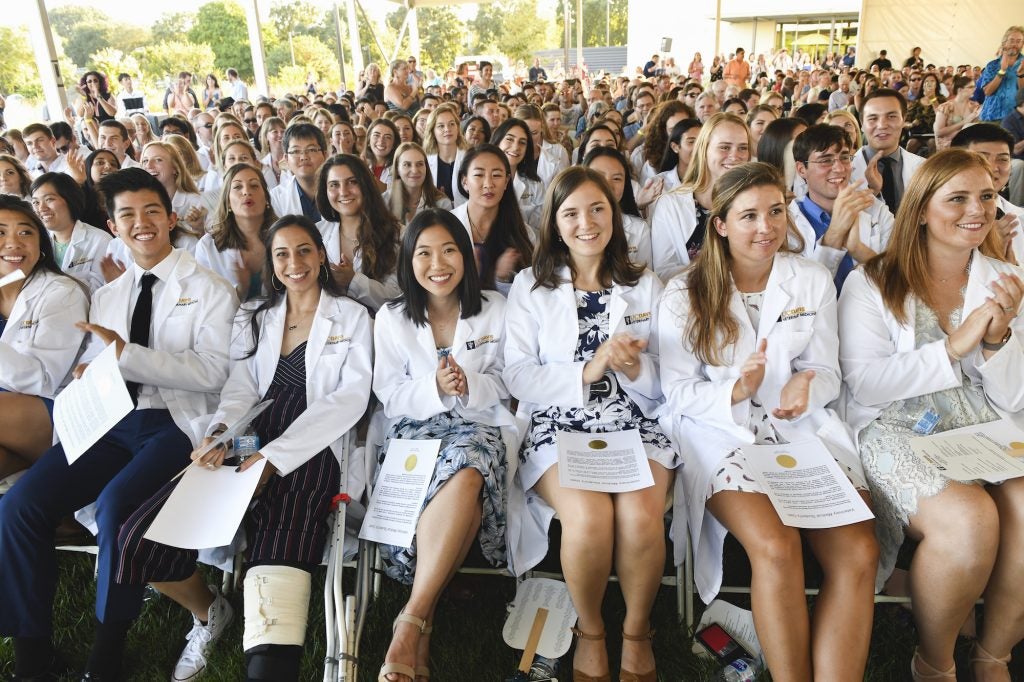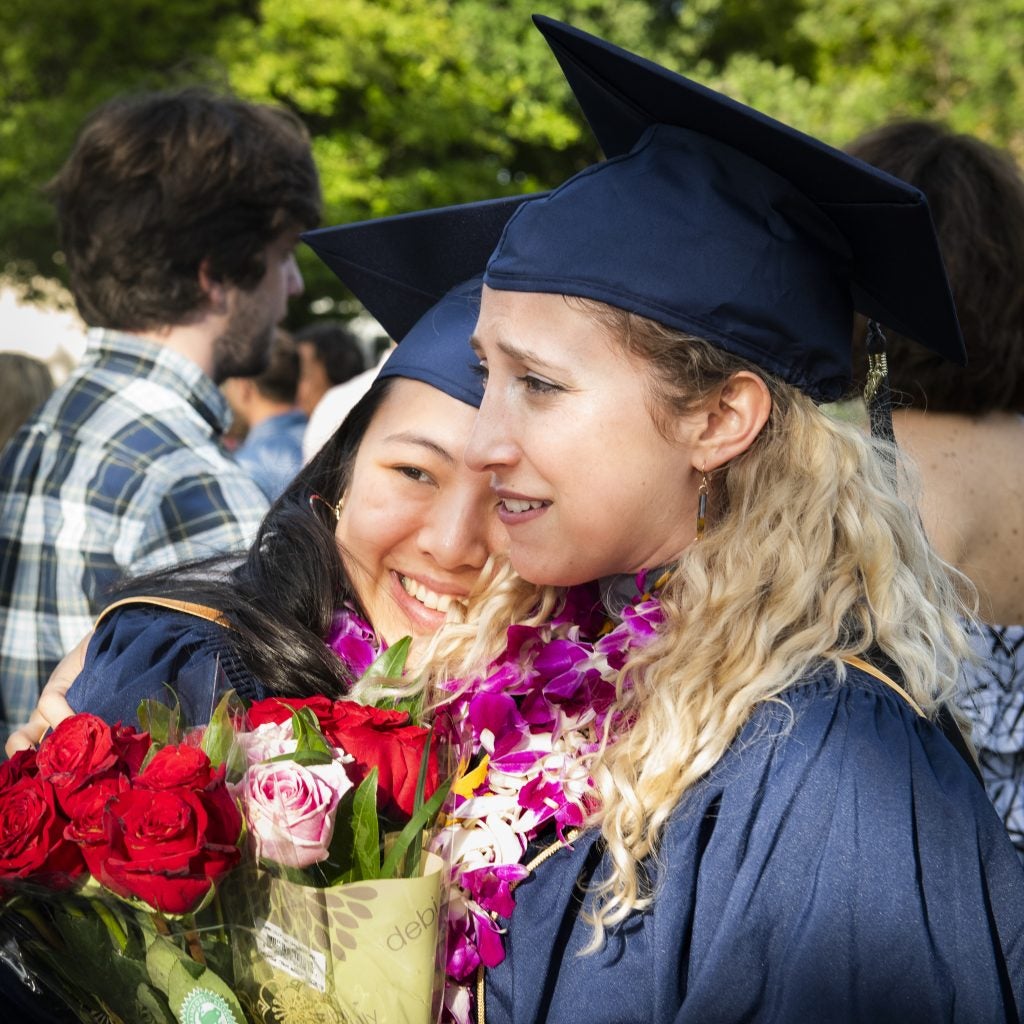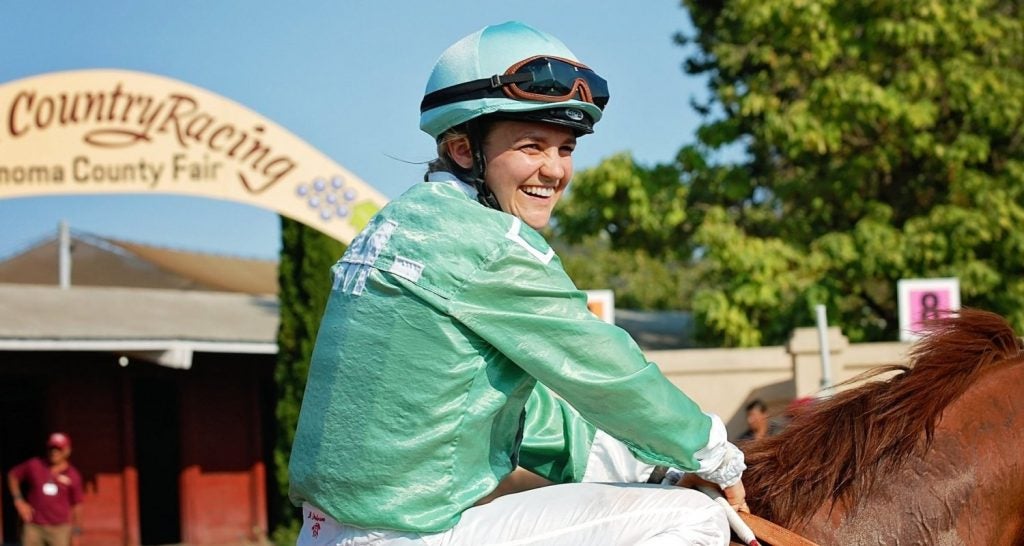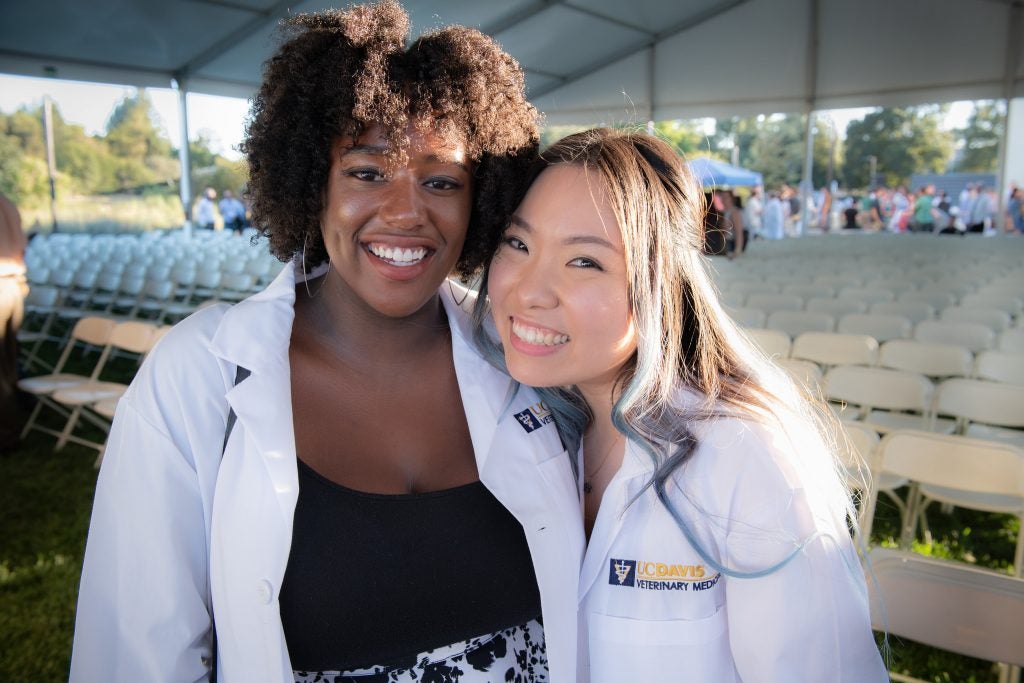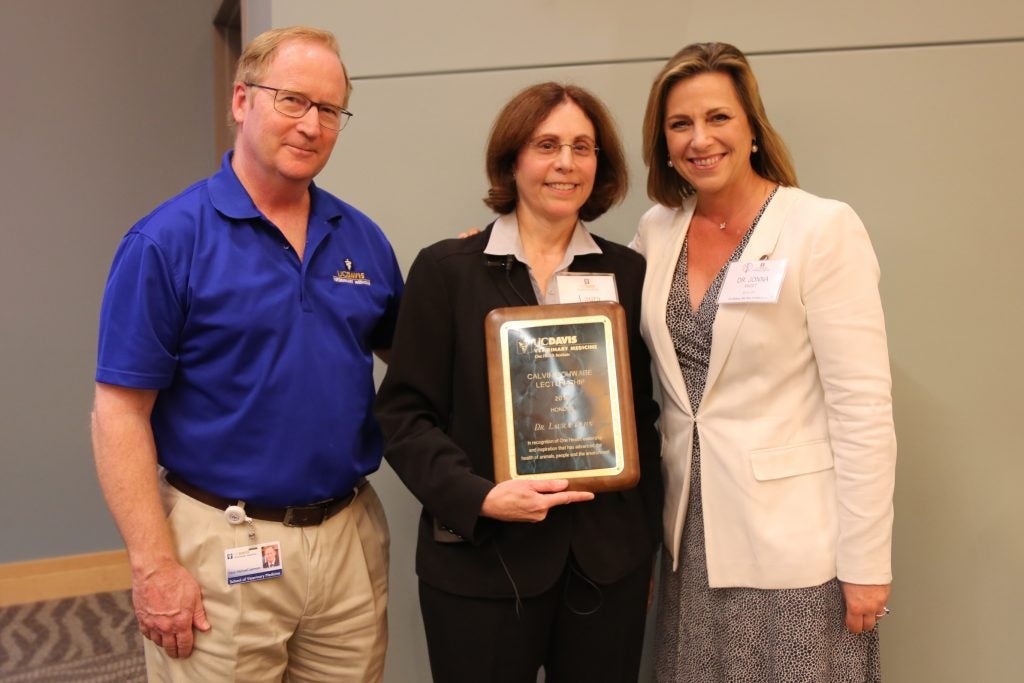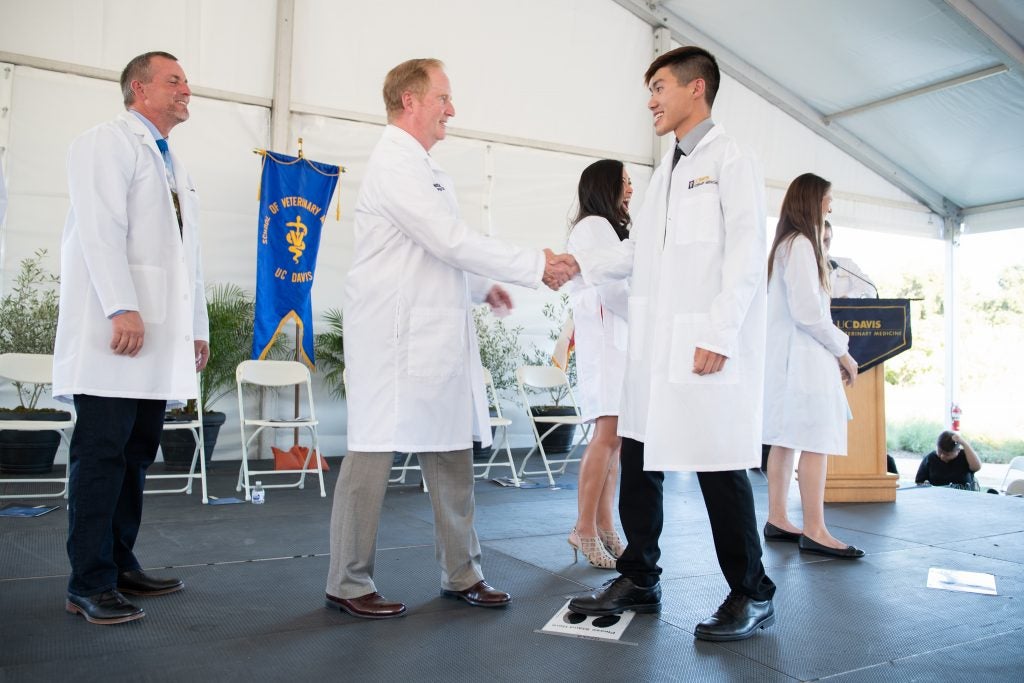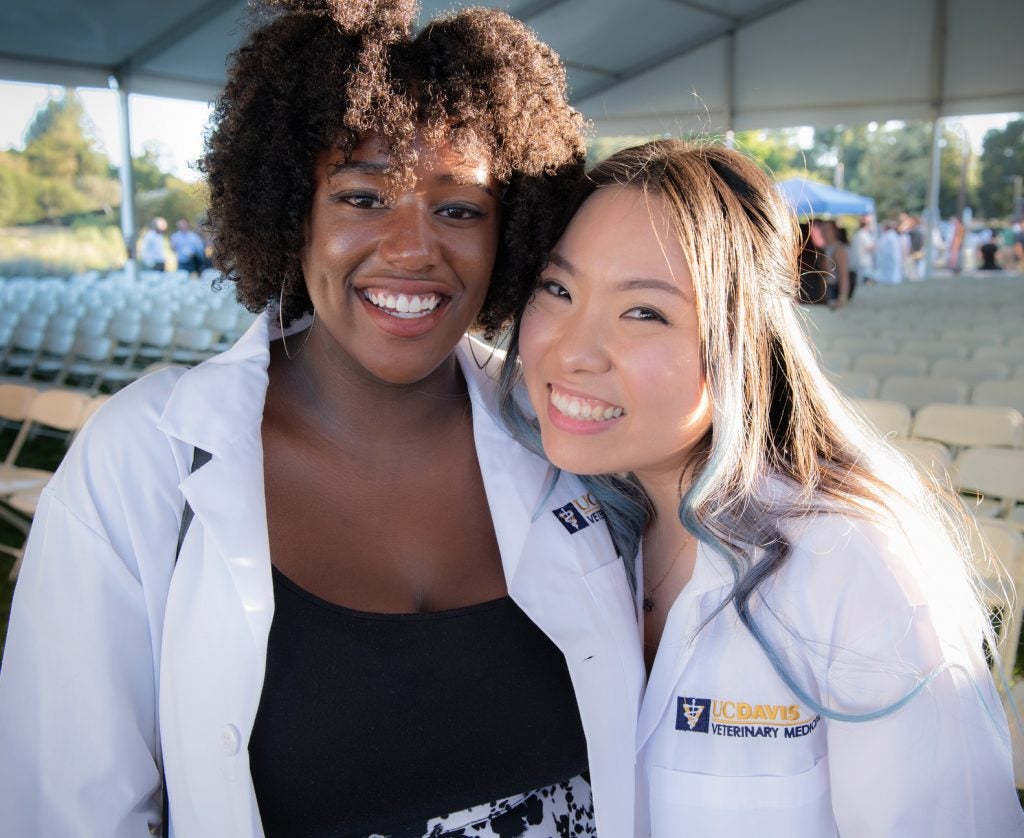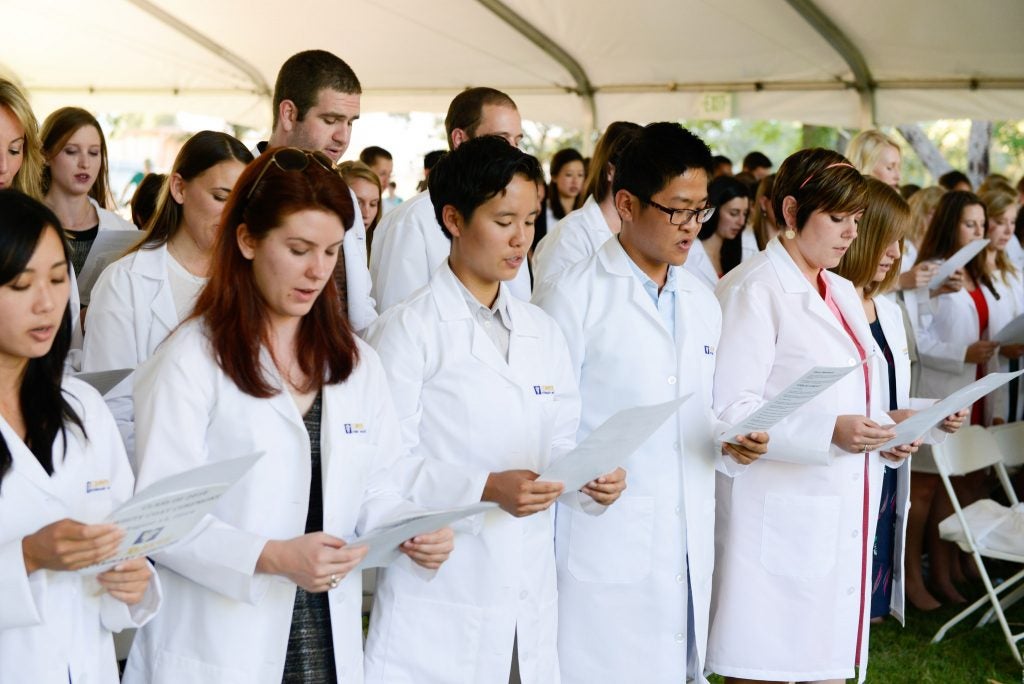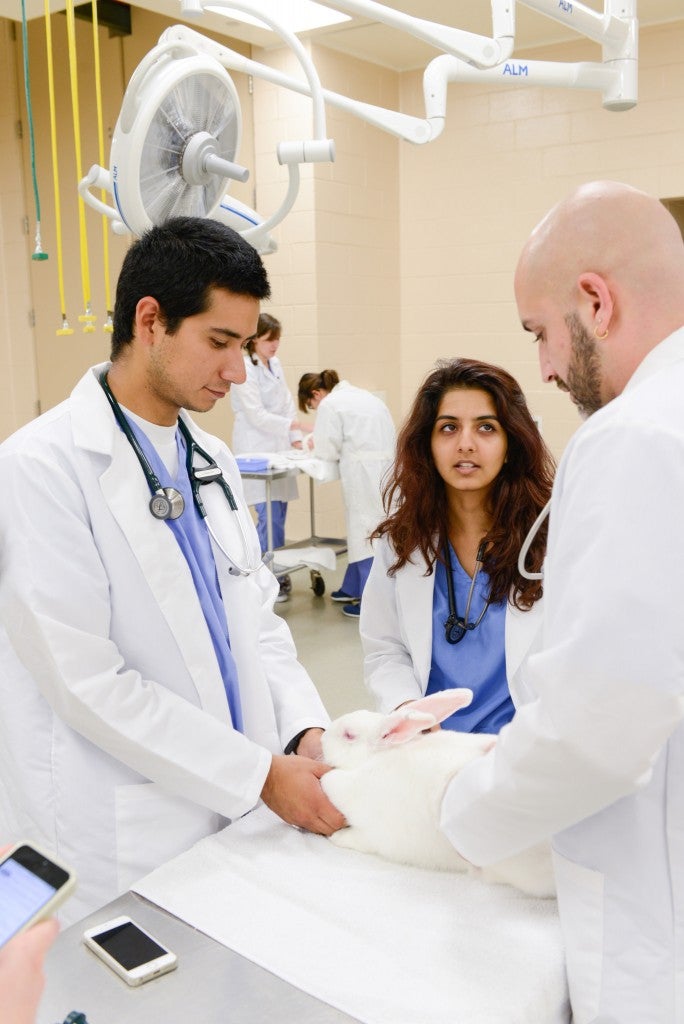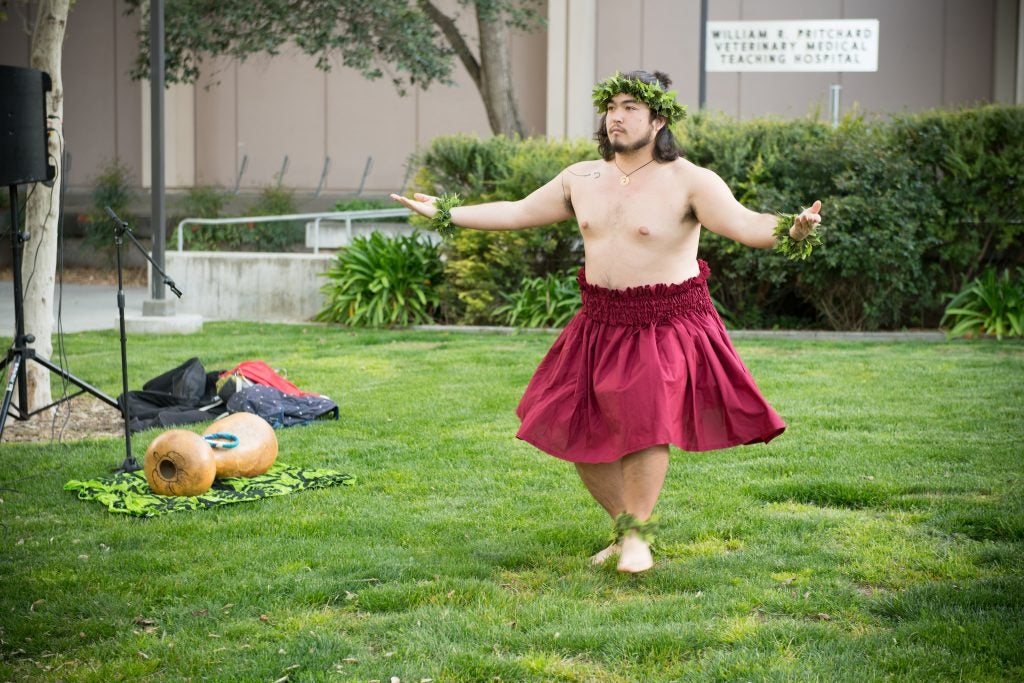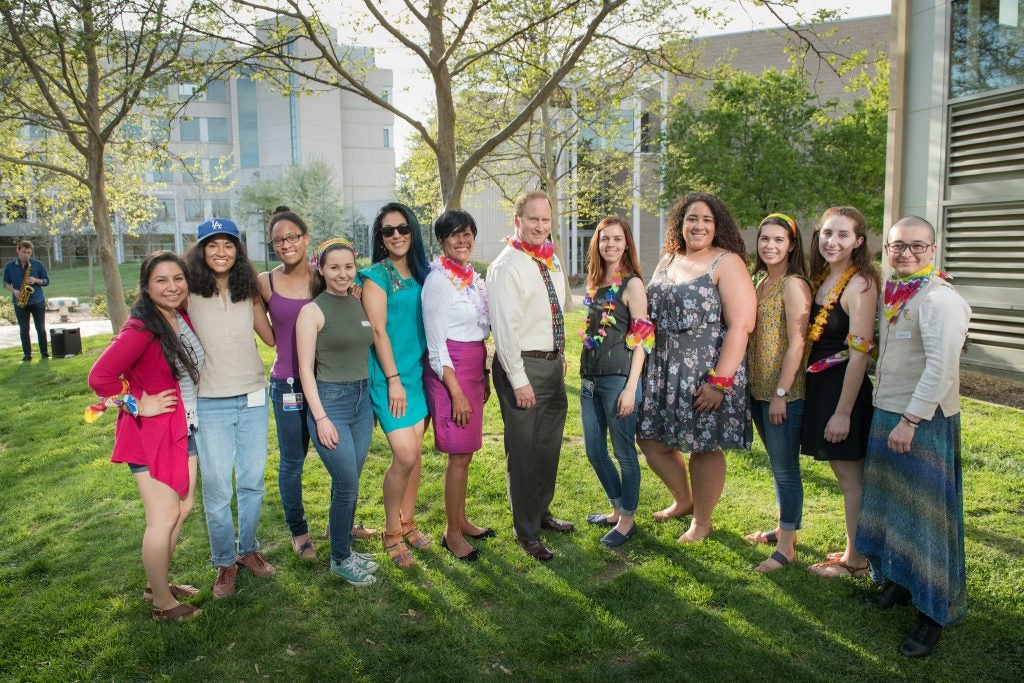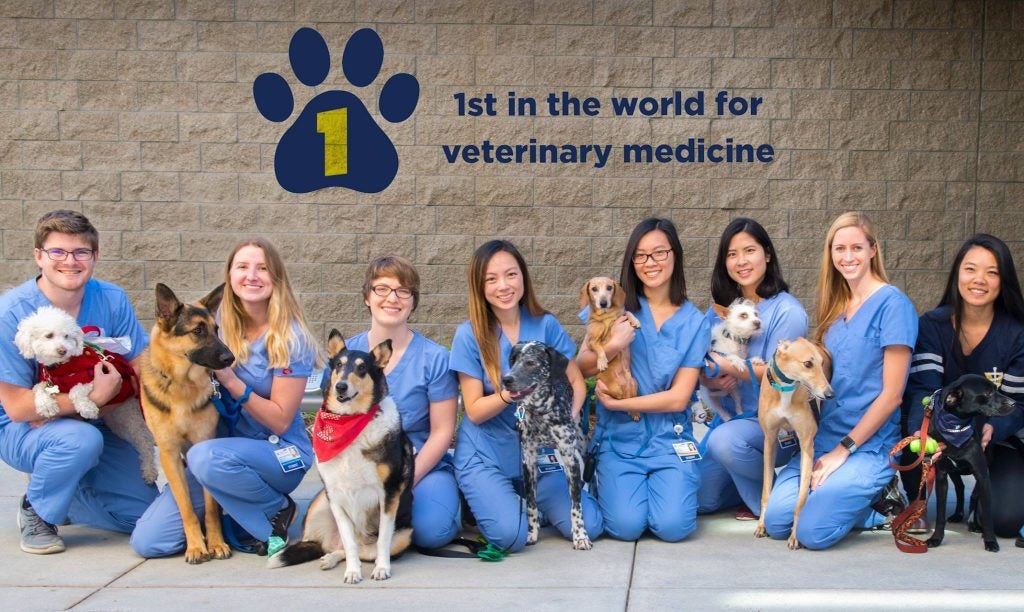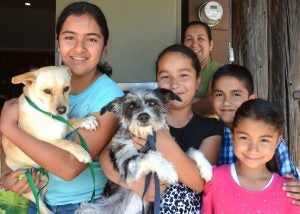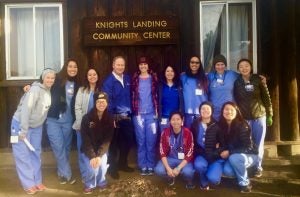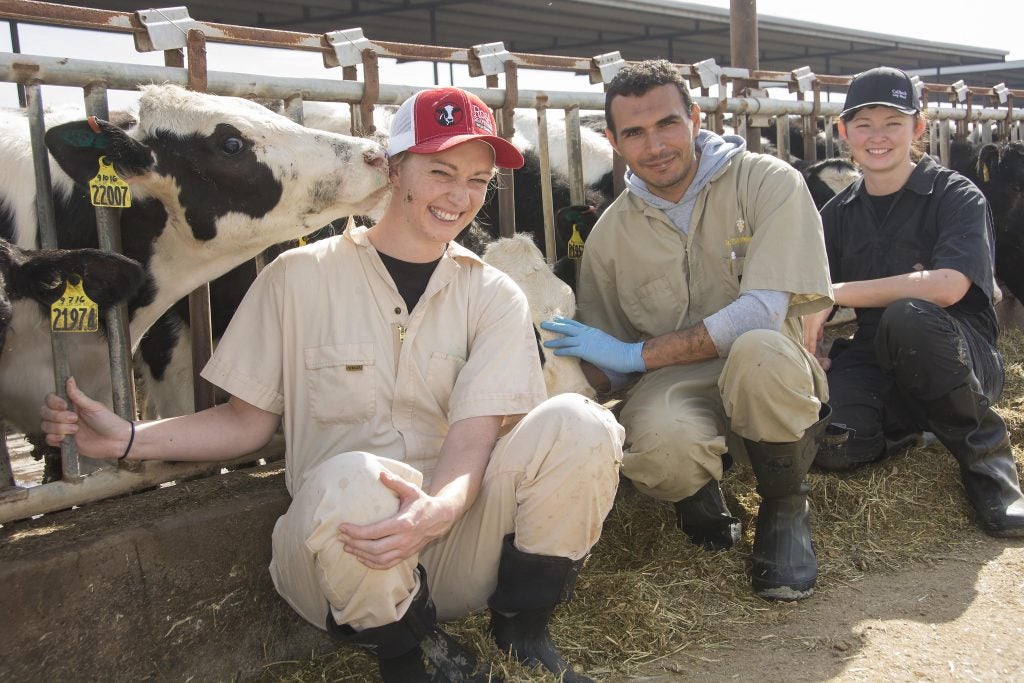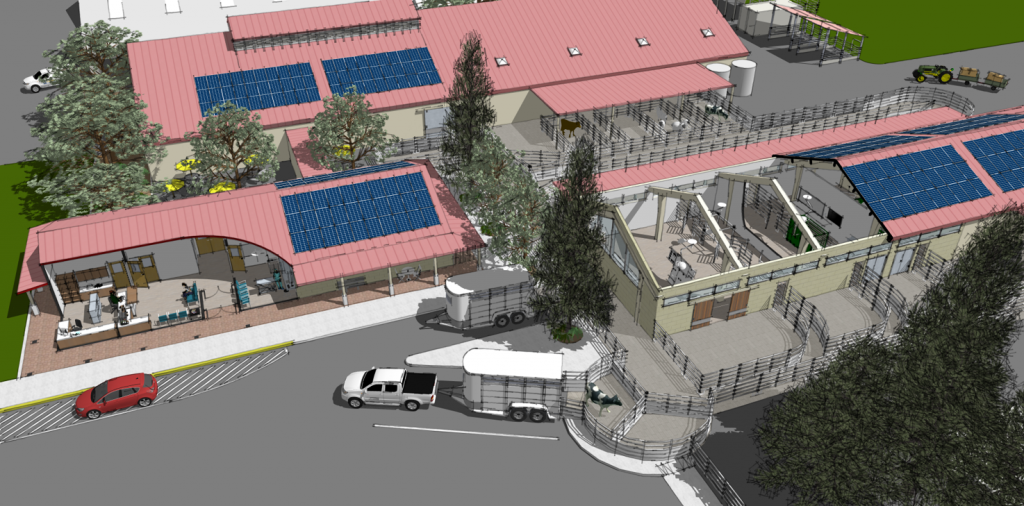“Change is the law of life. And those who look only to the past or present are certain to miss the future.” – John F. Kennedy
In our annual activities to orient and welcome new students to the next step in their academic journey, we are reminded of the potential of the future. By introducing them to our traditions, we are, in turn, inspired by their energy to define what lies ahead. In listening to their dreams, we reflect on our past and renew our belief in change.
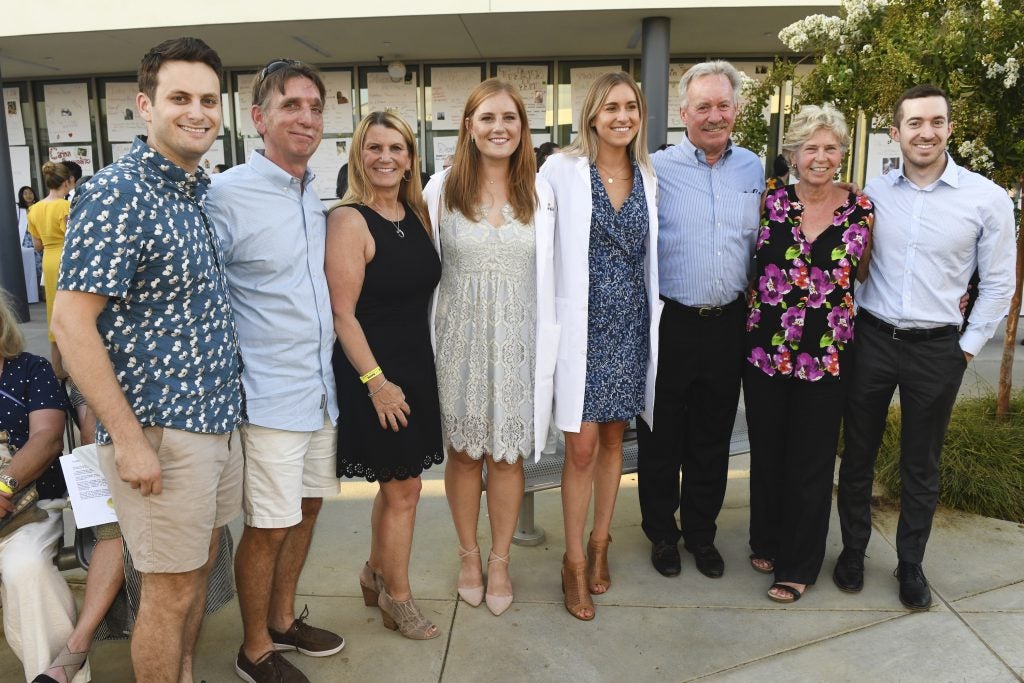
Ali Pankowski and Elizabeth Grant (left to right in center) are both from multigenerational DVM families.
I like to remind each class that they have all worked extremely hard to get the chance to pursue their dreams of becoming a veterinarian. Each of them had the ability to apply to medical school and become doctors who treat humans, instead they were accepted into a profession that treats humanity. Our new class of veterinary students, like so many before them, come to us with their own histories, talents, and dreams—each with their own story to share with us. For example, the class includes members whose parents include past presidents of the California Veterinary Medical Association and family histories built upon veterinary medicine.

